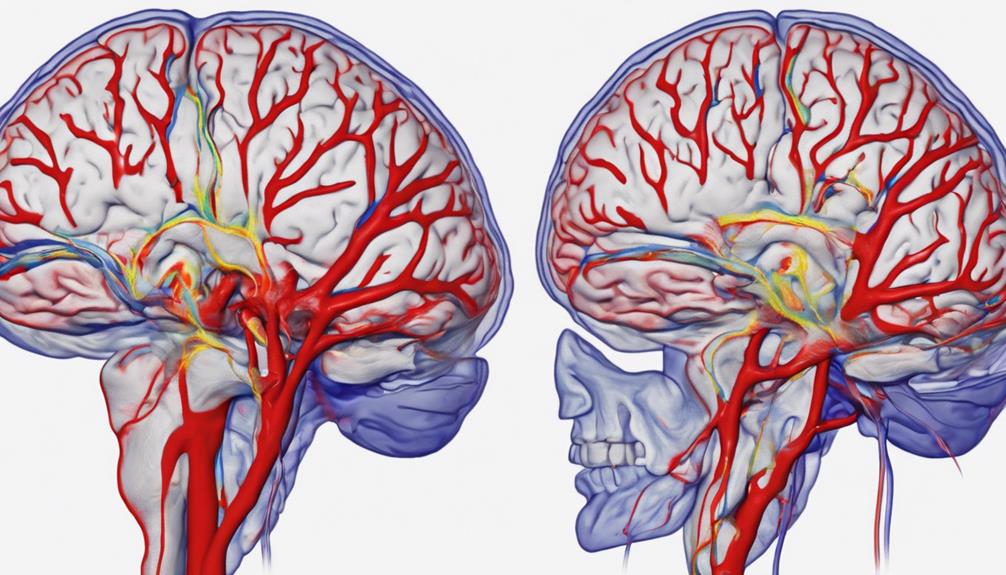When we discovered that my grandfather was experiencing dementia, it felt like everything had changed dramatically. The once lively, resilient, and knowledgeable person we cherished was starting to diminish, turning into a mere shadow of his former self. Witnessing his deterioration was extremely sad, and we struggled to figure out the most effective way to assist him during his last days.
Dementia’s final stages can be incredibly difficult for both individuals and their families. The advanced stage brings with it a unique set of challenges, from managing worsening symptoms to making important end-of-life decisions. It is a time when every action and decision carries immense weight and significance.
As we navigated the complexities of managing end-stage dementia, we learned the importance of seeking specialized care and support. It was through our collective efforts, the love we shared, and the resources available to us that we were able to provide the care and comfort my grandfather needed in his final days.
In this article, we will explore the different stages of dementia progression, delve into the signs that indicate end-stage dementia, discuss the various care options available, and highlight the support systems in place for families during this challenging time. Our aim is to shed light on understanding dementia’s final chapters and provide you with the knowledge and tools to navigate this emotional journey.
Join us as we embark on this exploration, standing together with those who have been touched by dementia in understanding its final stages and the care it demands.
Key Takeaways:
- Understanding the stages of dementia progression is crucial for providing effective end-of-life dementia care.
- Recognizing the signs of end-stage dementia can help caregivers anticipate and manage the needs of individuals with advanced dementia.
- Palliative care and hospice care are specialized options that can provide support and comfort for those with end-stage dementia.
- Caregivers should seek support from organizations like the Alzheimer’s Association to navigate the challenges of late-stage dementia.
- Preserving the quality of life and dignity of individuals with late-stage dementia is a key focus in end-of-life care.
The Signs of End-Stage Dementia
In the advanced or end-stage of dementia, individuals may exhibit specific signs that indicate the progression of the disease towards its final chapter. While these signs can vary from person to person, there are common indicators to look out for. Being aware of these signs can help caregivers and healthcare professionals provide appropriate care and support during this crucial stage.
1. Limited ability to speak: Individuals in the end-stage of dementia often struggle to communicate verbally. They may only be able to utter single words or short phrases, making it challenging to express their needs or thoughts.
2. Reduced mobility and increased fragility: Physical abilities decline significantly as dementia reaches its late stage. Individuals may experience a marked decrease in mobility, leading to difficulties in performing routine tasks and an increased risk of falls.
3. Difficulty with eating, swallowing, and bladder/bowel control: End-stage dementia commonly manifests as difficulties with eating and swallowing, which can result in weight loss and malnutrition. Moreover, individuals may face challenges in controlling their bladder and bowel functions.
4. Fluctuating levels of consciousness and increased sleep: Cognitive function deteriorates rapidly in the final stage of dementia, leading to fluctuating levels of consciousness. Individuals may experience increased sleepiness, spending most of their time in a state of drowsiness or deep sleep.
5. Irregular breathing and restlessness: The end-stage of dementia often brings irregular patterns of breathing, accompanied by restlessness. These physiological changes can be distressing for both individuals and their caregivers.
6. Inability to swallow: In the final days of dementia, individuals may lose the ability to swallow, making it challenging to consume food and fluids. This can pose significant health risks and necessitate specialized end-of-life care.
In the late stage of dementia, individuals may experience rapid deterioration in cognitive function, fluctuating levels of consciousness, increased sleep, irregular breathing, restlessness, and the inability to swallow.
The length of the end-stage can vary, ranging from a few weeks to several months. It is generally a shorter stage compared to the earlier stages of the disease. During this time, healthcare professionals skilled in palliative care and hospice care can provide valuable insights into the timing and care needs of individuals in the late stages of dementia.
Understanding the signs of end-stage dementia enables caregivers and healthcare professionals to provide appropriate support and optimize the quality of life for individuals in this stage of the disease. It is important to utilize available resources and seek guidance from experts to ensure compassionate and effective care during the final chapter of dementia.
Life Expectancy and Care Options for Late-Stage Dementia
When it comes to late-stage dementia, it’s important to understand both the life expectancy of individuals with the condition and the available care options to ensure their comfort and well-being. Let’s take a closer look at these factors.
Life Expectancy in Dementia Patients
Life expectancy can vary depending on the type of dementia. Alzheimer’s disease, the most common form of dementia, typically has an average life expectancy of 8 to 10 years after diagnosis. However, other types such as vascular dementia and Lewy body dementia may have shorter life expectancies.
It’s important to note that life expectancy is just an estimate, and individuals with dementia can live for several years beyond the average. The progression of the disease can be unpredictable, and the rate of decline varies from person to person.
Care Options for Late-Stage Dementia
As the disease progresses to the late stage, individuals require intensive care to ensure their safety and well-being. Caregivers often face the decision of providing care at home or seeking specialized care options such as hospice care.
Home Care for Dementia Patients: Many individuals with late-stage dementia prefer to receive care in the comfort of their own homes. This option allows them to remain in a familiar environment and can provide a sense of security. Caregivers may choose to enlist the help of professional caregivers or home healthcare services to assist with the individual’s daily needs.
Hospice Care for Dementia Patients: Hospice care is a specialized form of care that focuses on providing comfort and support to individuals with life-limiting illnesses, including end-stage dementia. With an emphasis on pain management and emotional support, hospice care can be provided at home or in a medical facility, depending on the individual’s needs and preferences.
Caregivers should carefully consider their loved one’s needs, the available resources, and their own capabilities when making decisions about late-stage dementia care. Seeking support and guidance from healthcare professionals and organizations specializing in end-stage dementia care can also be beneficial.
To gain a clearer understanding, the table below highlights the key differences between home care and hospice care for individuals with late-stage dementia:
| Home Care for Dementia Patients | Hospice Care for Dementia Patients |
|---|---|
| Can be provided in the familiar setting of the individual’s home | Can be provided at home or in a medical facility |
| Assistance with daily tasks and personal care | Focuses on providing comfort and pain management |
| May require the assistance of professional caregivers or home healthcare services | Provides a team of healthcare professionals, including nurses and doctors |
| Offers flexibility in terms of daily routines and family involvement | Provides specialized support and guidance for end-of-life decisions |
Palliative Care for End-Stage Dementia
Palliative care, an essential component of specialized healthcare for end-stage dementia, provides comprehensive support to individuals nearing the end of their lives. When the caregiving needs of individuals with end-stage dementia exceed what can be managed at home, palliative care professionals offer around-the-clock care to ensure the physical, emotional, and spiritual well-being of the person. This type of care is especially crucial as the ability to communicate becomes more challenging.
Palliative care professionals are trained to recognize signs of pain and discomfort in individuals with end-stage dementia, even when verbal communication is limited. They employ a holistic approach that encompasses not only medical care but also focuses on preserving the person’s quality of life and dignity. By addressing the unique needs of each individual, palliative care providers strive to maintain their comfort and enhance their overall well-being throughout the final chapters of their lives.
Preserving Quality of Life in End-Stage Dementia
Preserving the quality of life is a core objective of palliative care for individuals with end-stage dementia. This approach involves creating a care plan that considers the individual’s preferences, values, and personal history. By tailoring care to accommodate their unique needs, healthcare professionals can promote a sense of familiarity, comfort, and connectedness for the person with dementia.
“Palliative care focuses on preserving the quality of life and dignity of individuals with end-stage dementia.”
Meaningful interactions, such as engaging through sensory experiences, can significantly improve the person’s well-being. Caregivers may play their loved one’s favorite music or help them revisit cherished memories through photos and mementos. These simple but personalized activities can create moments of joy, comfort, and connection, enhancing their overall quality of life during the late stages of dementia.

End-of-Life Preparation with Death Doulas
When individuals with end-stage dementia and their families face the approaching end of life, working with a death doula can be valuable. A death doula provides emotional, spiritual, and practical support, helping both the person with dementia and their family navigate the emotional complexities of this chapter. They offer guidance on conversations surrounding end-of-life decisions, legacy-building activities, and creating a peaceful environment that honors the person’s wishes and values.
| Benefits of Palliative Care for End-Stage Dementia |
|---|
| Expert support in managing symptoms and providing pain relief |
| Enhanced communication and understanding between the person with dementia and their caregivers |
| Improved comfort and quality of life through a holistic approach |
| Emotional and practical support for both the person with dementia and their family |
In the next section, we will delve into the various options and considerations surrounding home care and hospice care for individuals with late-stage dementia.
Home Care and Hospice Care for Dementia Patients
When it comes to caring for individuals with dementia, many prefer the comfort and familiarity of receiving care at home throughout their journey. Home care offers several advantages, including a safe and secure environment that can reduce signs of aggression and confusion associated with advanced dementia. However, it is important to consider that home care requires a significant time commitment from family members and caregivers, as well as financial resources for specialized care.
In cases where a person with dementia is experiencing advanced symptoms and requires specialized end-of-life care, hospice care becomes a viable option. Hospice care professionals are trained to ensure the individual’s comfort and manage symptoms effectively, providing a peaceful and pain-free experience. The decision to consider hospice care is often based on a physician’s diagnosis of six months or less to live, or when the needs of the person with dementia cannot be adequately met by family caregivers alone. Hospice care can be provided either at home or in a medical facility, depending on the preferences and needs of the individual and their family.

Advantages of Home Care for Dementia Patients:
- Comfort and familiarity of the home environment
- Reduced signs of aggression and confusion
- Individualized care and attention
- Possibility for family involvement in caregiving
When to Consider Hospice Care for Dementia Patients:
- Physician’s prognosis of six months or less to live
- Advanced symptoms and increased needs that exceed family caregiver capabilities
- Desire for specialized end-of-life care and symptom management
Choosing between home care and hospice care for dementia patients depends on various factors, including the individual’s preferences, the level of support required, and the availability of resources. Caregivers should consult with healthcare professionals and consider the specific needs of their loved ones to make the best decision for their care.
Hospice Care for Dementia Patients
| Advantages | Considerations |
|---|---|
| Specialized end-of-life care | May require transfer to a medical facility |
| Pain and symptom management | Need for 24/7 professional care |
| Support for the individual and their family | Potential emotional impact on family members |
Caregivers play a crucial role in making decisions about home care and hospice care for dementia patients. By considering their loved ones’ preferences, needs, and available resources, caregivers can ensure that their loved ones receive the appropriate care and support during this challenging stage of the disease.
Support for Caregivers of Late-Stage Dementia Patients
Caregiving for someone with late-stage dementia can be emotionally and physically exhausting, leading to caregiver fatigue and depression. It is essential for caregivers to seek support and assistance to ensure their own well-being.
Several organizations offer resources and support for caregivers, such as the Alzheimer’s Association, which provides local chapters and support groups. These groups are invaluable for caregivers to connect with others who are going through similar experiences and share advice and coping strategies.
Eldercare is a government service that connects caregivers with various resources, including transportation, insurance assistance, and housing assistance. They can provide practical support and guidance to alleviate some of the burden on caregivers.
VA Caregiver Support Programs specifically cater to caregivers of eligible Veterans, offering education, resources, and support. These programs recognize the unique challenges faced by caregivers of veterans with late-stage dementia and are equipped to provide tailored assistance.
It’s important for caregivers to prioritize their own physical and mental health. Take breaks when needed, seek respite care, and consider joining support groups or seeking therapy. Remember, you are not alone, and there are resources available to help you navigate the challenges of caregiving for late-stage dementia patients.

Late-Stage Care and Preserving Quality of Life
The late stage of Alzheimer’s disease is characterized by significant cognitive decline and loss of verbal communication. However, research suggests that some core aspects of the person’s self may still be present, and meaningful connections can be established through sensory experiences.
In late-stage dementia, connecting with individuals requires innovative approaches that go beyond traditional verbal communication. By engaging the senses, caregivers can create meaningful interactions that promote a sense of connection and well-being.
Caregivers can engage individuals through touch, sound, sight, taste, and smell, providing a multisensory experience that taps into their remaining cognitive and emotional capacities.
For example, playing their favorite music can evoke memories and emotions, providing comfort and stimulation. Looking at old photos together can trigger recognition and help individuals reminisce about their past. Even preparing their favorite food can evoke a sense of familiarity and pleasure.

Despite the challenges of late-stage dementia, it is important for caregivers to continue providing care that focuses on preserving the individual’s quality of life and dignity. By adapting communication strategies and finding ways to connect through sensory experiences, caregivers can promote engagement, emotional well-being, and a sense of belonging for individuals in late-stage dementia.
Late-Stage Care Options and Decisions
Deciding on late-stage care options for individuals with dementia can be a challenging process for families. As the needs of those with late-stage dementia become more intensive, it may become necessary to consider moving them into a care facility to ensure their safety and receive the level of care needed. This decision is made with their best interests in mind.
When considering moving to a care facility, it is important for families to gather information about different facilities, such as their staff-to-resident ratio, specialized dementia care programs, and safety measures. This research will help families make informed decisions that prioritize the well-being of their loved ones. Visiting potential care facilities and talking to staff members can also provide valuable insights into the quality of care provided.
Hospice care is another option to consider for individuals in the late stage of dementia. It focuses on offering comfort, pain management, and emotional support during the final stages of life. Hospice care can be provided at home or in a medical facility, depending on the individual’s needs and preferences. It is a compassionate approach that ensures dignity and comfort for individuals with end-stage dementia.
End-of-life decisions for individuals with dementia should be discussed and documented while they still have the capacity to participate in decision-making. This includes decisions regarding medical interventions, resuscitation, and preferences for palliative or hospice care. Having these conversations early on can provide peace of mind for both the individual and their family, knowing that their wishes will be honored.

Ultimately, the late-stage care options for individuals with dementia require careful consideration, weighing the best interests and needs of the person with dementia. By exploring different care facilities, considering hospice care options, and having open conversations about end-of-life decisions, families can ensure their loved ones receive the appropriate care and support during this stage of the disease.
Conclusion
The final chapter of dementia is a challenging and emotional journey for both individuals and their families. It is crucial to understand the stages of dementia progression, recognize the signs of end-stage dementia, and be aware of the available care options to provide compassionate and effective support.
Caregivers play a vital role in preserving the quality of life and dignity of individuals with late-stage dementia. Seeking support from healthcare professionals, specialized organizations in dementia care, and caregiver support programs can help navigate the challenges and complexities of this final chapter. By approaching the end of life with empathy, understanding, and access to appropriate resources, families can provide their loved ones with the care and support they need during this stage of the disease.
Understanding dementia’s final stages allows us to offer personalized and holistic care, ensuring comfort and dignity for the person with dementia. By staying informed and leveraging the expertise of healthcare professionals, we can navigate the difficulties of dementia’s final chapter and make well-informed decisions about end-of-life care.
Together, we can make a difference in the lives of those affected by dementia, providing the support and care necessary to ensure their well-being and comfort throughout this challenging journey.
FAQ
What are the stages of dementia progression?
Dementia typically progresses through three stages: early, middle, and late. Each individual may experience symptoms differently, but the stages are categorized as mild, moderate, and severe.
What are the signs of end-stage dementia?
The signs of end-stage dementia can include limited ability to speak, reduced mobility, frequent falls, difficulty with eating and swallowing, and increased sleep. In the final days before death, individuals may experience rapid deterioration in cognitive function, irregular breathing, and restlessness.
How long can individuals with dementia live after diagnosis?
Individuals with dementia can live for several years after diagnosis, with the average life expectancy for Alzheimer’s disease being 8 to 10 years. Other types of dementia may have shorter life expectancies. The late-stage of dementia typically lasts for 1 to 2 years.
What are the care options for individuals in the late-stage of dementia?
Caregivers may choose to provide care at home, but intensive, around-the-clock care is usually required. Hospice care is also an option, focusing on providing comfort and support at the end of life.
What is palliative care and how does it help individuals with end-stage dementia?
Palliative care is specialized healthcare for individuals in advanced stages of a disease who are nearing the end of life. It provides support in meeting physical, emotional, and spiritual needs, while preserving quality of life and dignity.
Is home care or hospice care a better option for individuals with late-stage dementia?
Home care allows individuals to remain in a familiar environment, but it can be challenging and demanding for caregivers. Hospice care provides specialized end-of-life care, focusing on comfort and support. The decision depends on the individual’s needs and the caregiver’s abilities.
Where can caregivers find support for late-stage dementia care?
Caregivers can seek support from organizations such as the Alzheimer’s Association, Eldercare, and VA Caregiver Support Programs. These resources offer education, resources, and assistance for caregivers.
How can caregivers preserve the quality of life for individuals with late-stage dementia?
Caregivers can engage individuals through sensory experiences, such as playing music, looking at photos, and preparing favorite foods. Despite the challenges, it is important to provide care that focuses on maintaining dignity and quality of life.
How do families make late-stage care decisions for individuals with dementia?
Families should gather information, consider the available options, and prioritize the individual’s well-being. Moving to a care facility and seeking hospice care are common options. Discussions about end-of-life care wishes should be held while the person with dementia can participate.









